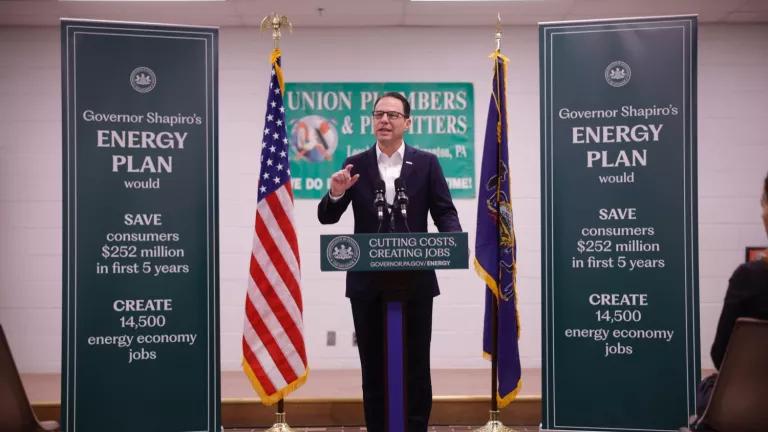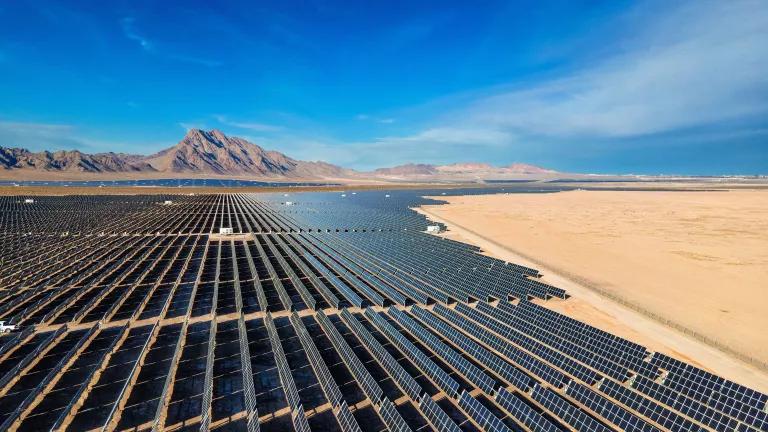Despite Dire Climate Reports, Trump’s EPA Drags Us Backward
Lately just about every other week there’s both a new scientific report warning about the urgent dangers of climate change and a new proposal from the Trump administration rolling back climate protections. Today, Trump’s Acting EPA Administrator Andrew Wheeler released another take-us-backwards proposal to weaken the current carbon pollution standards for new coal-fired power plants. Just yesterday scientists reported that 2017 greenhouse gas emissions rose sharply after two flat years. The dangers of climate change are accelerating even faster than we thought, and the Trump administration is doing all it can to make things worse.
The Intergovernmental Panel on Climate Change cautioned in October that we need to take “rapid, far-reaching and unprecedented” action to reduce greenhouse gas emissions to avert catastrophic warming. And less than two weeks ago the federal government released the Fourth National Climate Assessment describing the climate impacts already occurring in the U.S. and the grave risks to come.
But the Trump administration is relentlessly proposing rollbacks of virtually every federal limit on climate-changing emissions. In just the last few months, the Trump EPA has proposed to: repeal and replace the Clean Power Plan’s limits on carbon pollution from existing power plants; weaken standards for methane emissions from oil and gas operations; and freeze fuel efficiency and emissions standards for vehicles. A rational administration would take swift and decisive action to curb the pollution that’s driving dire risks of climate change. But the Trump administration wants only to drag us back to a dirty fossil-fueled past, and ruin the future.
Now the Trump EPA has proposed to weaken the current standards for newly constructed coal plants. The standards, established in 2015, set reasonable limits on carbon dioxide emissions for new fossil fuel-fired power plants based on the level EPA determined was achievable through application of the “best system of emission reduction.” For new coal plants, EPA determined in 2015 that the best system includes partial carbon capture and sequestration (CCS). EPA based that determination on a robust record showing the technical and economic feasibility of CCS and the wide geographic availability of places to safely store the captured carbon underground.
Wheeler’s new proposal would rescind this CCS requirement based on new assertions that CCS is too costly and not widely available. But as we showed in recent comments on the proposed Clean Power Plan rollback, the evidence has only gotten stronger since 2015 that CCS technology is adequately demonstrated and comes at reasonable cost.
Wheeler doesn’t disagree with EPA’s 2015 forecast that few, if any, new coal plants will be built. But Wheeler tries to use that fact to justify weakening the standards. The fact that new coal plants are uneconomic, with or without CCS, is no basis for ignoring the law. EPA must fulfill its Clean Air Act obligations by setting standards based on the best system of emission reduction available and achievable, in case someone decides to defy market signals and build new coal plants anyway.
Over the last ten years we’ve seen power markets change dramatically. Electricity growth is down as American businesses and consumers adopt more efficient appliances, lightbulbs, and other electricity-driven machines. Low natural gas prices have led to widespread expansion of gas generation, and declining wind and solar costs have driven significant increases in renewable generation. But we cannot rely on market forces alone to achieve the emission reductions necessary to avert the worst of climate change. In fact, total U.S. greenhouse gas emissions are projected to increase by 2.5 percent this year after decreasing for the previous several years.
The 2015 standards serve as an insurance policy against changes in these trends, and set investment expectations for utilities: if a company considers building a new coal plant, it is on notice that the plant will need to use partial CCS or other technologies to meet the achievable emission standard. The burden is on the Trump administration to justify why the existing law should be rolled back, and this proposal does not meet that burden. Instead of going backwards, EPA should be looking at extending CCS-based standards to other major categories of fossil fuel-burning sources.
Study after study after study shows that we need to act swiftly to avoid catastrophic climate disruption. The evidence is clear that to the extent we continue to burn fossil fuels, we need to utilize carbon capture technology to limit or eliminate those emissions. What public policy purpose could possibly be served by weakening existing law to remove the requirement to do exactly what the science tells us is necessary?



